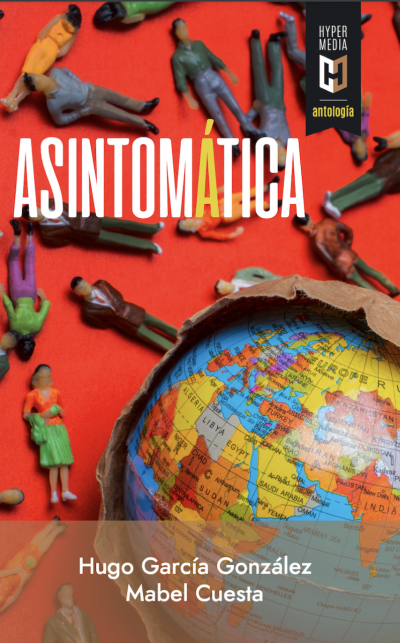WWU's Hugo García González to present new anthology tonight at 5 p.m. in conjunction with La Universidad del Claustro de Sor Juana
 WWU Associate Professor of Modern and Classical Languages Hugo García González will present “Asintomática. Escrituras del Encierro en Tiempos de Coronavirus,” a Spanish-language anthology about life during the pandemic he published in collaboration with University of Houston Professor of Latin American Studies Mabel Cuesta. The presentation will be held online at 5 p.m. for La Universidad del Claustro de Sor Juana, a university in Mexico City.
WWU Associate Professor of Modern and Classical Languages Hugo García González will present “Asintomática. Escrituras del Encierro en Tiempos de Coronavirus,” a Spanish-language anthology about life during the pandemic he published in collaboration with University of Houston Professor of Latin American Studies Mabel Cuesta. The presentation will be held online at 5 p.m. for La Universidad del Claustro de Sor Juana, a university in Mexico City.
Published last month, the anthology contains 31 written works ranging from short stories and poetry to plays, inviting the reader to spaces public and private throughout the Spanish-speaking world. The professors solicited more than 60 submissions in summer 2020, and selected works they thought represented a diverse spectrum of perspectives and demonstrated stylistic innovation and creativity.
In one example, 4 1/2 pages of RNA sequencing for the NSP3 protein of COVID-19 led to a poem about water because the author noticed the genes would occasionally spell “agua.”
García González said the anthology resulted from his restlessness during the lockdown. He had taken a sabbatical starting January 2020 to work on his book about the Afro-Cuban religious universe, which would have taken him to Cuba and Miami for interviews and photos. When COVID-19 canceled his travel plans and libraries shut down, he turned to social media and found friends and colleagues who shared his consternation.
“I started wondering, what could people be writing at this time?” he said. “I’m sure they’re putting all their frustration onto pages.”
Since his area of expertise is colonial Latin America, García González enlisted the help of Professor Cuesta, who studies contemporary Latin America and has connections with writers.
Ultimately, García González is impressed that the book exists at all. “I was surprised that I could find something to do in a moment that I thought would be a disaster,” he said. “I thought I had completely lost my sabbatical.”
The interrupted Afro-Cuban project has occupied the past several years of Professor García González’s life, so he did not neglect it even while curating the anthology, continuing his research with dozens of books he received before Interlibrary Loans were suspended.
His research spans multiple disciplines, from history and anthropology to theology and music, in order to explain the development and globalization of the Afro-Cuban religious universe, specifically the Regla de Ocha-Ifá religion.
“It’s a big project. It’s very beautiful, but it’s a big project,” he said. “I don’t know how many pages I have written at this time. There’s probably 400 pages.”